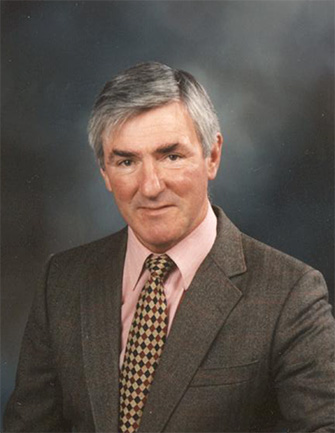
Major RE (retd) Frank Haxton IEng MICE MInstRE spent most of his career as a Civil Engineer for the Corps of Royal Engineers in the British Army. Now in civilian life, he is a renowned consultant on firearms range design and safety management.
How would you characterise your current work?
My wide-ranging career in Civil Engineering started in a Material Testing and Design Laboratory in the Royal Engineers. After further study as a Military Engineer, I worked in road and airfield design and construction. The final years of my work have been in design and operational safety of firearms ranges.
How do you feel about maths?
A poor grounding in maths at a post-war London school has been my Achilles' heel throughout my career. Ambition has driven me to learn on the job at each up-lift in my career. This difficulty detracts from the core subject and has been a limiting factor in my career.
What is it about your work that is mathematical?
Civil Engineering is to me the ultimate creative enterprise, “harnessing the great forces of nature for the benefit of mankind”.* Maths is the principle pillar underpinning the science of Civil Engineering. The simplest of structural designs involves analysis, requiring calculation. There can thus be no greater or more important subject for the Civil Engineer than mathematics.
How do you use maths, calculation or numeracy in your work? What tools do you use to help you?
Ensuring the safe use of firearms requires an understanding of ballistics to determine the hazard and the constructed form of the defences. Ballistics is almost purely mathematics, involving energy, velocity and trajectory calculations and terminal effect. The construction of defences is part material technology, but the constructed form involves geometry and trigonometry. Placing the structures requires detailed survey work, calculating angles and distances. Numeracy forms the basis of Quantity Surveying and pricing.
Maths as a tool of my work has changed exponentially over the years; logarithms, trigonometry tables and the slide rule have given primacy of place to the pocket calculator. The change has made maths more readily available as a tool, especially in field work.
Do you think maths is creative? If so, how?
I do not see maths as creative, rather as a tool to creativity.
Do you use or rely on any maths that you learnt in school?
The maths with which I left school was insufficient for any useful purpose. Anything beyond the four basic arithmetical functions was a mystery to me.
How would you change the school curriculum, if you had the chance? Why?
My proposal for change would be to the curriculum of teacher training. There is too little understanding of the world of work amongst teachers. Maths has hugely practical outcomes and to teach it in a vacuum fails to incentivise many young people. My experience of commanding a unit of 150 Army Apprentices aged 16 to 18 years old, was to see so many under-achievers succeed at A Levels in just two years. They were training as Cartographers, Surveyors, Engineers and in construction trades, and could now see maths not as an abstract topic, but as a vital tool of their chosen profession or trade.
*A traditional definition of Civil Engineering accepted by the Institute of Civil Engineers
Join the conversation: You can tweet us @CambridgeMaths or comment below.